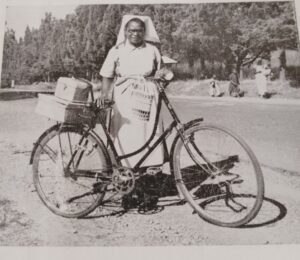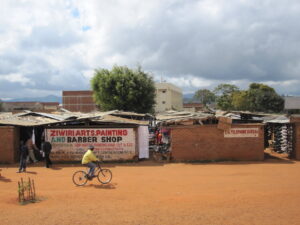Pedal Power, Job Power

Established in 1944, Mzuzu began around Tung oil plantations. After initial failures and a government takeover, it became an administrative hub where cycling was essential for missionaries and colonial administrators alike. During the 1980-1994 civil war, a transportation crisis triggered a surge in cycling. The lack of public transport in 1994 led to the rise of the kabaza (bicycle taxi) business, providing livelihoods for many young men and boosting the local economy.
Bicycles have also influenced Mzuzu’s politics and social campaigns, with political parties using kabaza operators to mobilize election support. Additionally, bicycles serve as mobile billboards and tools for social awareness campaigns. Conflicts with city authorities over operating zones prompted the creation of the Mzuzu Kabaza Owners Association to professionalize the industry and address accusations of dangerous road behavior and unsanitary conditions of their bicycle riders.
